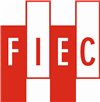FIEC: EU set to revamp public procurement rules
09 December 2024
In 2025, the European Commission will review the EU’s public procurement rules, which could have a significant impact on the construction industry. FIEC looks at what the impact of this revision will be.
 Political support for using public procurement to promote social and environmental agendas is strong, but this may raise a number of practical challenges (Photo: AdobeStock)
Political support for using public procurement to promote social and environmental agendas is strong, but this may raise a number of practical challenges (Photo: AdobeStock)
The EU’s public procurement framework, in place since 2014, has come under scrutiny for several reasons, including a decline in competition and an excessive focus on price-based decision-making. In response, there are growing calls for reform and the Commission is expected to assess the current EU Public Procurement rules and propose a revision.
This revision will have a significant impact on the construction sector, as public procurement sets the conditions under which construction companies compete for public works contracts. It represents an important opportunity to address long-standing challenges in the construction sector, such as in-house procurement or unfair competition from third-country companies in public procurement procedures.
European products
Stéphane Séjourné, who has been nominated for the role of Executive Vice-President for Prosperity and Industrial Strategy in the new European Commission, has been tasked by Commission President von der Leyen with revising the Public Procurement Directives. His mission letter emphasises the need to improve the security of supply of essential technologies and services while simplifying rules and reducing administrative burdens. The revision also aims to give preference to European products in strategic sectors, although these are not specified.
The upcoming revision could therefore be an opportunity to enable preference for services, in addition to products. Moreover, it could strengthen the role of sectors such as construction, which should be recognised as strategic for the EU. The construction industry plays a crucial role in sectors such as energy and transport, while supporting the EU’s sustainability goals, job creation and high employment standards, and promoting resilience and innovation in the face of global competition.
A strong push
Political support for using public procurement to promote social and environmental agendas is strong, but this may raise a number of practical challenges. The use of “strategic” procurement, particularly in relation to some types of ESG (environmental, social and governance) criteria, has raised concerns in the construction sector. Many in the industry believe that “strategic” procurement needs to be carefully evaluated and that it is essential to maintain a direct link between award criteria and contract performance objectives.
Subcontracting is also expected to be a major issue, with various organisations, in particular trade unions, lobbying for further restrictions on what is already allowed under current EU legislation. Contractors across Europe fear that these changes could lead to overregulation and limit the participation of SMEs in procurement projects, as SMEs often rely on subcontracting for larger projects. In addition, given the labour shortage in the construction sector, many in the industry believe that maintaining flexibility in subcontracting is essential to address workforce challenges.
Public procurement is a priority topic for the European Construction Industry Federation (FIEC). In a bid to enhance fairness and efficiency in public procurement, FIEC proposed several key reforms to the current framework in its FIEC Manifesto for Action 2024-2029. One proposal is restricting the possibilities of in-house procurement by public administrations, in order to promote competition and transparency. Another is the development of a common European methodology for calculating life-cycle costs, which would standardise assessments in line with EU procurement directives.
What to expect
FIEC considers that the inclusion and exclusion criteria for third-country bidders could also be refined. A good approach is set out in the European Commission’s guidance on the participation of third country bidders, which clarifies the access restrictions for such bidders. Moreover, the need for public authorities to leverage the option of submitting variants to encourage innovative solutions in public contracts is emphasised. Finally, FIEC asks for stronger measures that would prevent public authorities to award contracts on the basis of price only.
The Commission is expected to carry out an evaluation of the Public Procurement Directives shortly, bringing together various stakeholders in a dedicated expert group and launching a public consultation by the end of the year. Discussions are also beginning at the political level. A proposal to revise the current framework is expected to be published in 2025, possibly during the Danish Council Presidency. FIEC and the construction industry as a whole will seek to play an active role in this process.
CONNECT WITH THE TEAM





